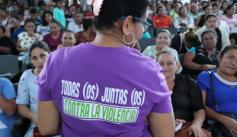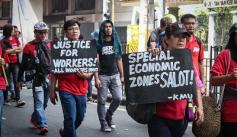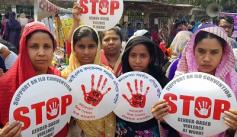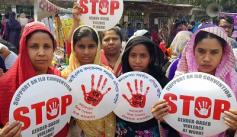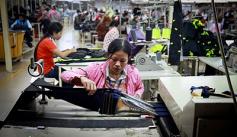Blog: Gender-Based Violence and Harassment
June 28, 2024
To Celebrate International Women’s Day, Companies Should Focus on Their Supply Chains, Not Their Social Media
March 8, 2024
Our Own Best Defense: How Unions Can Stop GBV at Work
June 14, 2019
A Worker By Any Other Name
June 12, 2019
The Definition of Violence
March 13, 2019
How President Trump is Fueling Honduran Migration North
January 30, 2018
Pages
Browse blog by issue
- Child Labor (223)
- Forced Labor (35)
- Gender-Based Violence and Harassment (102)
- Health & Safety (38)
- Living Wage (18)
- 1 of 2
- next ›
Browse blog by country
- Bangladesh (39)
- Cambodia (3)
- Colombia (2)
- Cote d’Ivoire (7)
- Ghana (5)
- 1 of 4
- next ›
Blog archive
- March 2025 (2)
- February 2025 (1)
- October 2024 (1)
- August 2024 (1)
- June 2024 (1)
- March 2024 (1)
- February 2024 (1)
- September 2023 (2)
- March 2023 (2)
- February 2023 (1)
- 1 of 17
- next ›


